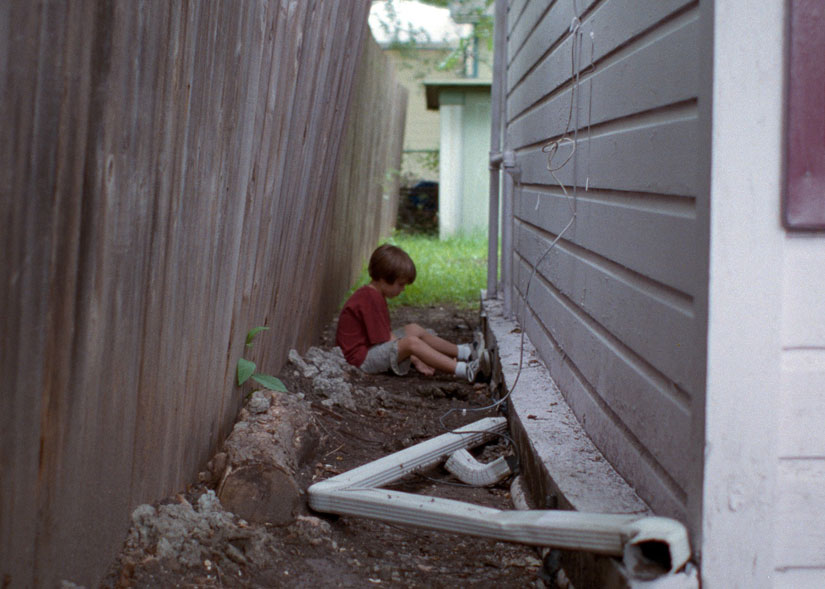[To commemorate the limited theatrical release of Boyhood, we are re-posting this review of the film from this year’s Sundance Film Festival]
Boyhood
Director: Richard Linklater
Rating: N/A
Release Date: January 19, 2014 (Sundance)
Richard Linklater is known for his style of filmmaking that focuses on the mundane. Conflict and narrative don’t mean much to the writer/director, his preoccupations with film revolving more around the naturalistic approach to capturing real life and humanity. He’s explored and experimented with cinematic techniques throughout his career, with the rotoscoping found in Waking Life and A Scanner Darkly to the long takes found in the Before trilogy being the most indicative of his interests.
However, Linklater raised the bar with his latest film, Boyhood. Shot over a 12 year period, the film is a linear exploration of a young boy’s growth into an adult from the ages of 6 to 18 and the growing relationship he has with his father. It’s epic in scope and, under the guidance of another director, might have bombed out early in production. Linklater’s latest cinematic experiment blurs the lines between reality and fiction, narrative and documentary, and does so in a way that is never once intimidating or loses sight of its goal.
Boyhood follows the life of Mason (Ellar Coltrane) who, at the beginning of the film, is a six year old facing a sudden move with his mother (Patricia Arquette) and sister (Lorelei Linklater). Not long after arrival, the kids’ estranged father (Ethan Hawke) re-enters their lives, promising to spend more time with them. The film then proceeds to track the next 12 years of Mason’s life as he faces typical adolescent conflict such as girls, bullies, peer pressure, etc., to darker moments like his mother’s abusive husbands. Each year is noted by little cues pinpointing which year the scene takes place in, mostly noted by audio cues of that year’s popular songs.
Boyhood could be seen as a 12-year-long scripted reality show, not unlike the plethora of garbage infiltrating TV right now. However, the film is so much more than that. As Mason grows older, you can see how his younger self already had a sense of self-identity, and watching it manifest itself over the film’s 164 minutes (yes, it’s a long ride) is a gift. Linklater might have had an inkling of a narrative idea upon Boyhood‘s early beginning, but kept it flexible to adapt to Coltrane’s life and how it progressed. In a way, there’s a blurring of lines between when Coltrane began playing Mason and when Mason and Coltrane became one in the same.
What separates Boyhood from documentaries is that, despite the film’s scope and approach, it’s still very much a fictional narrative. The film represents a natural cinematic experience that’s never once caught up by its artificial conflicts. I can’t even begin to fathom the editing process Linklater and crew had to go through to boil down 12 years’ worth of footage into a seamless feature; 164 minutes may sound like too much, but I personally didn’t feel it one bit. What I did feel, however, was Linklater’s patented focus on existential pontification is represented not only in Mason, but in the film’s interesting approach; moreover, Boyhood retains a sense of nostalgia for the past decade, becoming itself a time capsule of ’00s Americana.
Boyhood may not resonate with everybody, but it will certainly leave a lasting impression on every single person that watches the film. Linklater’s ability to not only capture so much and have the ability to adapt every physical and emotional change within Mason/Coltrane into a cohesive fictional narrative is an achievement in and of itself. The film will be talked about for a long time, at first due to its interesting approach, but will hopefully be remembered by the sum of its parts.

